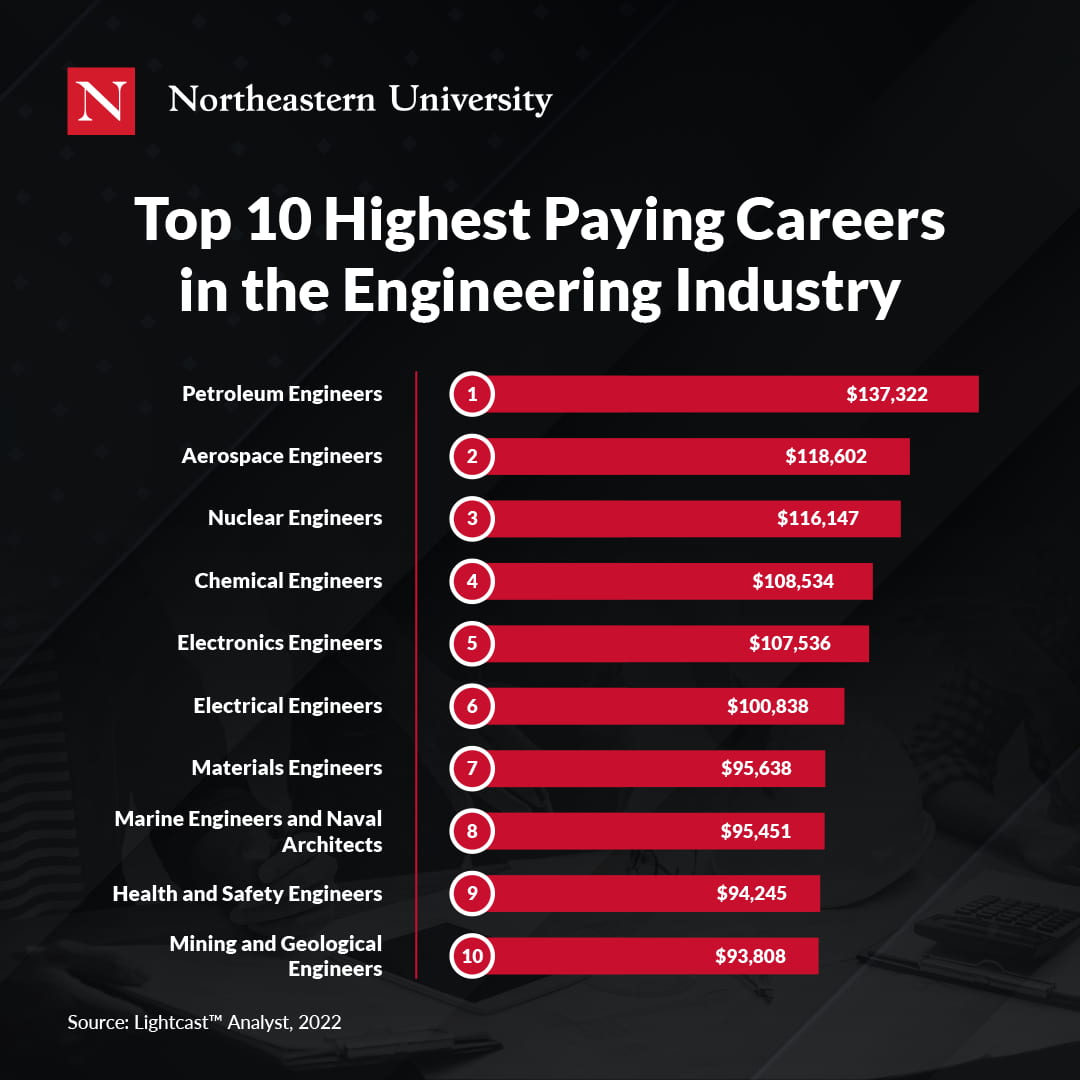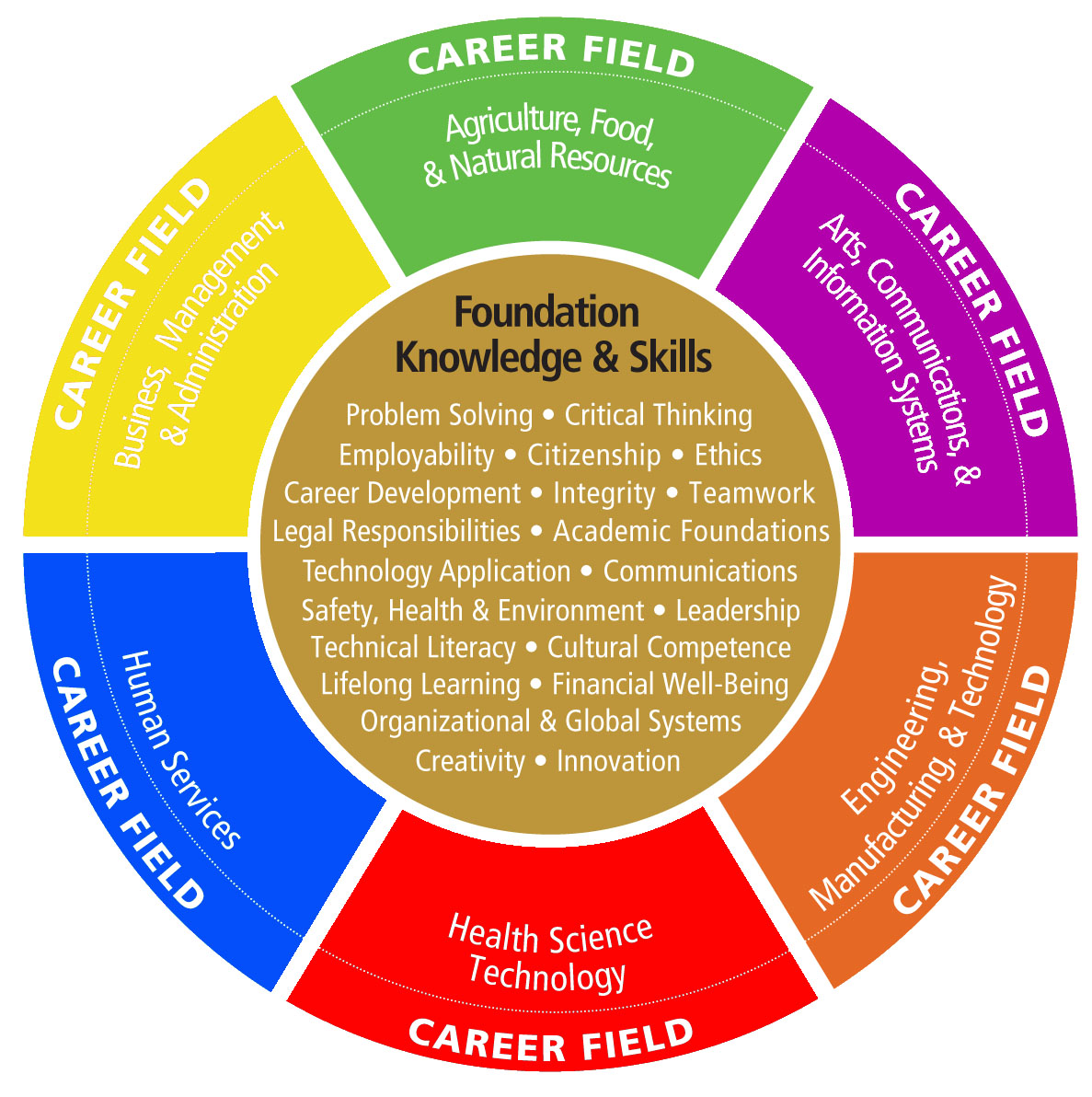Why Choosing the Right Career is Crucial for Financial Success
Selecting a career that aligns with your financial goals is a critical decision that can have a lasting impact on your overall well-being. A fulfilling career can provide a sense of purpose, job satisfaction, and stability, ultimately leading to financial success. On the other hand, a mismatch between your career and financial goals can result in frustration, stress, and a sense of unfulfillment.
When considering the best job to earn money, it’s essential to think about your long-term financial objectives. Are you looking to pay off debt, build wealth, or achieve financial independence? Whatever your goals, choosing a career that offers a competitive salary, opportunities for growth, and a sense of personal fulfillment is crucial.
Research has shown that employees who are satisfied with their jobs are more productive, have better work-life balance, and are more likely to experience financial success. In contrast, those who are unhappy in their careers may struggle with motivation, experience burnout, and face financial difficulties.
So, how can you ensure that you’re choosing a career that aligns with your financial goals? Start by identifying your strengths, skills, and interests. What are you passionate about? What are your values and priorities? By understanding what drives you, you can begin to explore career options that offer a sense of purpose and fulfillment.
Additionally, consider the job market and growth prospects of your desired career. Are there opportunities for advancement? Is the industry growing or declining? By doing your research and staying informed, you can make an informed decision about your career and set yourself up for financial success.
Ultimately, choosing the right career is a personal decision that requires careful consideration and planning. By taking the time to reflect on your goals, values, and priorities, you can set yourself on the path to financial success and a fulfilling career.
Top Industries for High-Paying Jobs: Trends and Insights
The job market is constantly evolving, with new industries emerging and existing ones adapting to technological advancements. To find the best job to earn money, it’s essential to stay informed about the most lucrative industries and their growth prospects. In this section, we’ll explore the top industries for high-paying jobs, including tech, finance, and healthcare.
The tech industry is one of the fastest-growing and most lucrative fields, with job opportunities in software development, data science, and cybersecurity. The demand for skilled tech professionals is high, with salaries ranging from $100,000 to over $200,000 per year. To succeed in this industry, you’ll need to stay up-to-date with the latest technologies and trends, and possess skills in programming languages, data analysis, and problem-solving.
The finance industry is another high-paying field, with job opportunities in investment banking, financial analysis, and portfolio management. The finance industry is highly competitive, with salaries ranging from $80,000 to over $500,000 per year. To succeed in this industry, you’ll need to possess skills in financial modeling, data analysis, and risk management, as well as a strong understanding of financial markets and regulations.
The healthcare industry is also a high-paying field, with job opportunities in medical research, healthcare management, and pharmaceuticals. The healthcare industry is growing rapidly, with salaries ranging from $60,000 to over $200,000 per year. To succeed in this industry, you’ll need to possess skills in medical research, data analysis, and healthcare management, as well as a strong understanding of healthcare regulations and policies.
In addition to these industries, there are many other fields that offer high-paying job opportunities, including renewable energy, aerospace, and biotechnology. To find the best job to earn money, it’s essential to research the job market, growth prospects, and required skills for each industry. By staying informed and adaptable, you can increase your chances of success and find a high-paying job that aligns with your skills and interests.
According to the Bureau of Labor Statistics, the top 10 highest-paying industries in the United States are:
- Software development: $124,000 per year
- Investment banking: $114,000 per year
- Financial analysis: $104,000 per year
- Medical research: $94,000 per year
- Healthcare management: $92,000 per year
- Renewable energy: $90,000 per year
- Aerospace: $88,000 per year
- Biotechnology: $86,000 per year
- Data science: $84,000 per year
- Cybersecurity: $82,000 per year
These figures are based on national averages and can vary depending on location, experience, and industry. However, they provide a general idea of the salary ranges for each industry and can help you make an informed decision about your career goals.
How to Identify Your Skills and Interests for a Lucrative Career
Identifying your skills and interests is a crucial step in finding a high-paying job that aligns with your strengths and passions. When you’re doing something you love, you’re more likely to be motivated, productive, and successful. In this section, we’ll provide practical advice on self-assessment, highlighting the importance of recognizing your strengths, weaknesses, and passions to find the best job to earn money.
To start, take some time to reflect on your skills and interests. What are you naturally good at? What do you enjoy doing in your free time? Consider your academic background, work experience, and volunteer work. Make a list of your skills and interests, and then categorize them into three groups: strengths, weaknesses, and passions.
Your strengths are the skills and abilities that you excel in. These might include problem-solving, communication, leadership, or analytical skills. Your weaknesses are areas where you need improvement or development. These might include time management, public speaking, or adaptability. Your passions are the things that you enjoy doing and that motivate you. These might include creative pursuits, helping others, or working with technology.
Once you have a clear understanding of your skills and interests, you can start to explore career options that align with your strengths and passions. Research job descriptions, salary ranges, and growth prospects for different careers. Network with people in your desired field and ask for their advice and insights.
It’s also important to consider your values and priorities when choosing a career. What matters most to you? Is it work-life balance, job security, or opportunities for advancement? Make a list of your top values and priorities, and then evaluate different career options based on how well they align with your values.
Another way to identify your skills and interests is to take career assessments and personality tests. These can provide valuable insights into your strengths, weaknesses, and passions, and can help you identify potential career paths. Some popular career assessments include the Myers-Briggs Type Indicator (MBTI), the Strong Interest Inventory, and the Holland Occupational Themes.
Finally, don’t be afraid to try new things and take risks. You might be surprised at what you enjoy and what you’re good at. Consider taking on a side project or volunteering for a cause you’re passionate about. This can help you gain new skills and experiences, and can also give you a sense of purpose and fulfillment.
By following these steps, you can gain a deeper understanding of your skills and interests, and can start to identify potential career paths that align with your strengths and passions. Remember, finding the best job to earn money is not just about the salary – it’s about finding a career that brings you joy, fulfillment, and a sense of purpose.
High-Paying Job Opportunities in Emerging Fields
Emerging fields like renewable energy, cybersecurity, and data science are creating new and exciting job opportunities that can lead to high-paying careers. These fields are not only in high demand but also offer a sense of purpose and fulfillment. In this section, we’ll explore the job prospects, required skills, and potential salaries in these emerging fields, helping you find the best job to earn money.
Renewable energy is a rapidly growing field that is transforming the way we generate and consume energy. With the increasing demand for sustainable energy solutions, careers in renewable energy are becoming more lucrative. Some high-paying job opportunities in renewable energy include:
- Solar Engineer: $90,000 – $140,000 per year
- Wind Turbine Technician: $80,000 – $120,000 per year
- Energy Efficiency Specialist: $70,000 – $110,000 per year
Cybersecurity is another emerging field that is in high demand. With the increasing threat of cyber attacks, companies are looking for professionals who can protect their networks and systems. Some high-paying job opportunities in cybersecurity include:
- Cybersecurity Consultant: $100,000 – $160,000 per year
- Penetration Tester: $90,000 – $140,000 per year
- Chief Information Security Officer (CISO): $150,000 – $200,000 per year
Data science is a field that is transforming the way we analyze and interpret data. With the increasing amount of data being generated, companies are looking for professionals who can extract insights and make informed decisions. Some high-paying job opportunities in data science include:
- Data Scientist: $110,000 – $170,000 per year
- Data Engineer: $100,000 – $160,000 per year
- Business Intelligence Analyst: $90,000 – $140,000 per year
These emerging fields offer a range of high-paying job opportunities that can lead to a fulfilling and lucrative career. By acquiring the required skills and education, you can position yourself for success in these fields and find the best job to earn money.
Remember, the job market is constantly evolving, and new fields are emerging all the time. Staying adaptable and continuously learning new skills is essential to succeed in today’s job market. By being open to new opportunities and willing to learn, you can find a high-paying job that aligns with your passions and interests.
The Role of Education and Training in Securing High-Paying Jobs
Acquiring relevant education and training is crucial to accessing high-paying job opportunities. In today’s competitive job market, employers are looking for candidates with specialized skills and knowledge that can add value to their organization. In this section, we’ll emphasize the significance of education and training in securing high-paying jobs, including the importance of certifications, diplomas, and degrees.
Education and training provide individuals with the skills and knowledge required to excel in their chosen career. By acquiring relevant education and training, individuals can increase their earning potential, enhance their job prospects, and stay competitive in the job market. Some of the benefits of education and training include:
- Increased earning potential: Studies have shown that individuals with higher levels of education and training tend to earn higher salaries.
- Enhanced job prospects: Education and training can provide individuals with the skills and knowledge required to access high-paying job opportunities.
- Improved job satisfaction: Education and training can help individuals find careers that align with their interests and passions, leading to improved job satisfaction.
There are various types of education and training that can lead to high-paying jobs, including:
- Certifications: Certifications are specialized credentials that demonstrate an individual’s expertise in a particular field. Examples of certifications include ITIL, PMP, and Six Sigma.
- Diplomas: Diplomas are academic credentials that demonstrate an individual’s completion of a specific course of study. Examples of diplomas include associate’s degrees, bachelor’s degrees, and master’s degrees.
- Degrees: Degrees are academic credentials that demonstrate an individual’s completion of a specific course of study. Examples of degrees include associate’s degrees, bachelor’s degrees, and master’s degrees.
Some of the highest-paying jobs that require education and training include:
- Software engineer: $100,000 – $200,000 per year
- Data scientist: $110,000 – $170,000 per year
- Physician: $200,000 – $600,000 per year
- Lawyer: $150,000 – $250,000 per year
In conclusion, education and training play a crucial role in securing high-paying jobs. By acquiring relevant education and training, individuals can increase their earning potential, enhance their job prospects, and stay competitive in the job market. Whether you’re looking to pursue a certification, diploma, or degree, investing in your education and training can lead to a lucrative and fulfilling career.
Networking and Building Connections for Career Advancement
Networking and building connections are essential for career advancement and finding the best job to earn money. In today’s competitive job market, having a strong professional network can help you stay ahead of the competition and access high-paying job opportunities. In this section, we’ll provide tips on building a professional network, attending industry events, and leveraging social media to connect with potential employers and advance your career.
Building a professional network requires effort and dedication, but it can pay off in the long run. Here are some tips to help you build a strong professional network:
- Attend industry events: Attend conferences, seminars, and workshops related to your industry to meet people who share similar interests and goals.
- Join professional organizations: Join professional organizations related to your industry to connect with people who share similar interests and goals.
- Volunteer: Volunteer for causes related to your industry to meet people who share similar interests and goals.
- Use social media: Use social media platforms like LinkedIn, Twitter, and Facebook to connect with people who share similar interests and goals.
Once you’ve built a strong professional network, it’s essential to leverage it to advance your career. Here are some tips to help you leverage your professional network:
- Reach out to people in your network: Reach out to people in your network to ask for advice, guidance, or job opportunities.
- Ask for referrals: Ask people in your network to refer you to job opportunities or introduce you to people who can help you advance your career.
- Use your network to get feedback: Use your network to get feedback on your resume, cover letter, or job search strategy.
Some of the best ways to leverage social media for career advancement include:
- Using LinkedIn to connect with people in your industry and join relevant groups.
- Using Twitter to connect with people in your industry and join relevant conversations.
- Using Facebook to connect with people in your industry and join relevant groups.
By building a strong professional network and leveraging it to advance your career, you can increase your chances of finding the best job to earn money and achieving financial success.
Salary Negotiation Strategies for Maximizing Earnings
Salary negotiation is a critical aspect of finding the best job to earn money. It’s essential to approach salary negotiations with confidence and a clear understanding of your worth. In this section, we’ll offer expert advice on salary negotiation, including researching market rates, preparing for negotiations, and confidently advocating for your worth.
Researching market rates is a crucial step in salary negotiation. It’s essential to understand the average salary range for your position and industry to make a strong case for your desired salary. Here are some tips to help you research market rates:
- Use online resources: Websites like Glassdoor, Payscale, and LinkedIn can provide valuable insights into average salary ranges for your position and industry.
- Network with professionals: Reach out to professionals in your industry and ask about their salary ranges.
- Review job postings: Look at job postings for similar positions to get an idea of the average salary range.
Preparing for negotiations is also essential. Here are some tips to help you prepare:
- Know your worth: Make a list of your skills, qualifications, and achievements to demonstrate your value to the employer.
- Set a target salary range: Based on your research, set a target salary range that you feel comfortable with.
- Practice your negotiation skills: Practice your negotiation skills with a friend or family member to build your confidence.
Confidently advocating for your worth is critical in salary negotiations. Here are some tips to help you advocate for your worth:
- Be confident: Believe in your worth and confidently advocate for your desired salary.
- Focus on your value: Emphasize your skills, qualifications, and achievements to demonstrate your value to the employer.
- Be flexible: Be open to negotiation and willing to compromise on salary.
Some of the best salary negotiation strategies include:
- The anchoring strategy: Start with a high anchor point to set the tone for the negotiation.
- The bundling strategy: Bundle your salary requirements with other benefits, such as vacation time or health insurance.
- The alternative strategy: Offer alternative solutions, such as a performance-based raise or a signing bonus.
By following these salary negotiation strategies, you can maximize your earnings and find the best job to earn money.
Creating a Long-Term Career Plan for Financial Success
Creating a long-term career plan is essential for achieving financial success and finding the best job to earn money. A well-planned career strategy can help you stay focused, motivated, and adaptable in a rapidly changing job market. In this section, we’ll provide guidance on setting realistic targets, creating a roadmap for success, and staying adaptable in a rapidly changing job market.
Setting realistic targets is the first step in creating a long-term career plan. Here are some tips to help you set realistic targets:
- Assess your current situation: Take an honest assessment of your current skills, experience, and education.
- Identify your strengths and weaknesses: Recognize your strengths and weaknesses to determine the best career path for you.
- Research the job market: Research the job market to determine the demand for your skills and experience.
Creating a roadmap for success is the next step in creating a long-term career plan. Here are some tips to help you create a roadmap for success:
- Set specific goals: Set specific, measurable, achievable, relevant, and time-bound (SMART) goals for your career.
- Develop a career strategy: Develop a career strategy that aligns with your goals and objectives.
- Identify the skills and education required: Identify the skills and education required to achieve your career goals.
Staying adaptable in a rapidly changing job market is essential for achieving financial success and finding the best job to earn money. Here are some tips to help you stay adaptable:
- Stay up-to-date with industry trends: Stay up-to-date with the latest industry trends and developments.
- Continuously develop your skills: Continuously develop your skills and education to stay competitive in the job market.
- Be open to new opportunities: Be open to new opportunities and challenges that can help you advance your career.
Some of the best ways to stay adaptable in a rapidly changing job market include:
- Embracing lifelong learning: Embracing lifelong learning and continuously developing your skills and education.
- Building a professional network: Building a professional network that can provide support and guidance throughout your career.
- Staying flexible: Staying flexible and open to new opportunities and challenges that can help you advance your career.
By following these tips and creating a long-term career plan, you can achieve financial success and find the best job to earn money.







